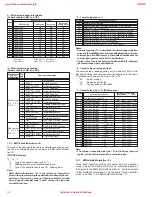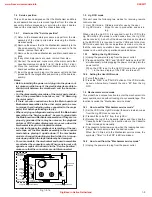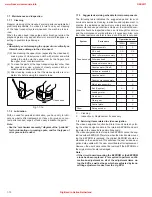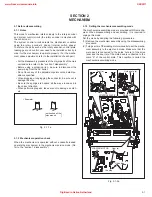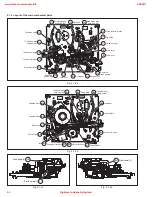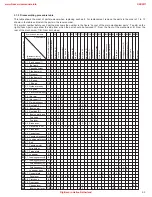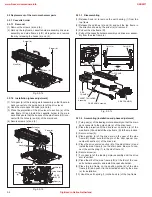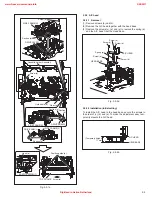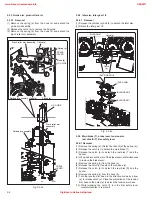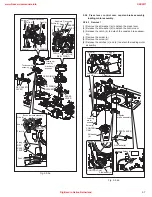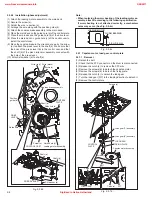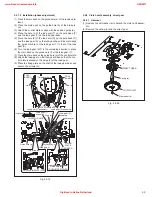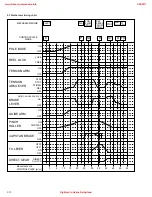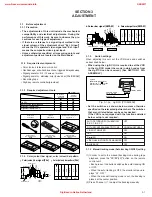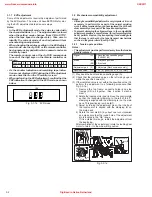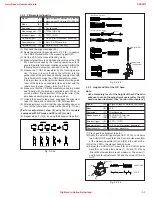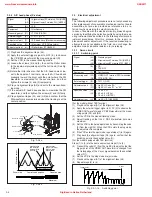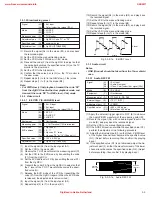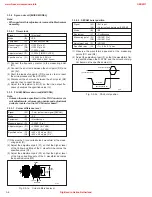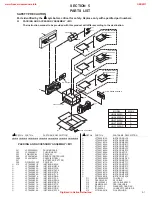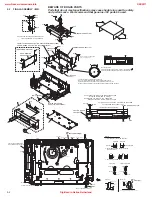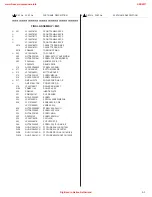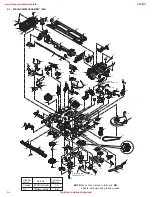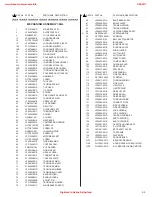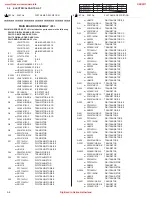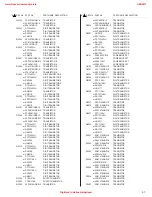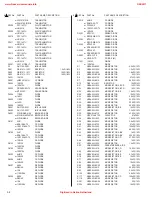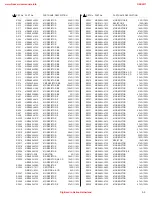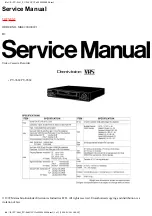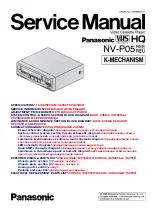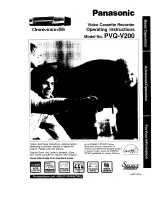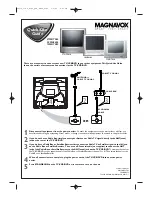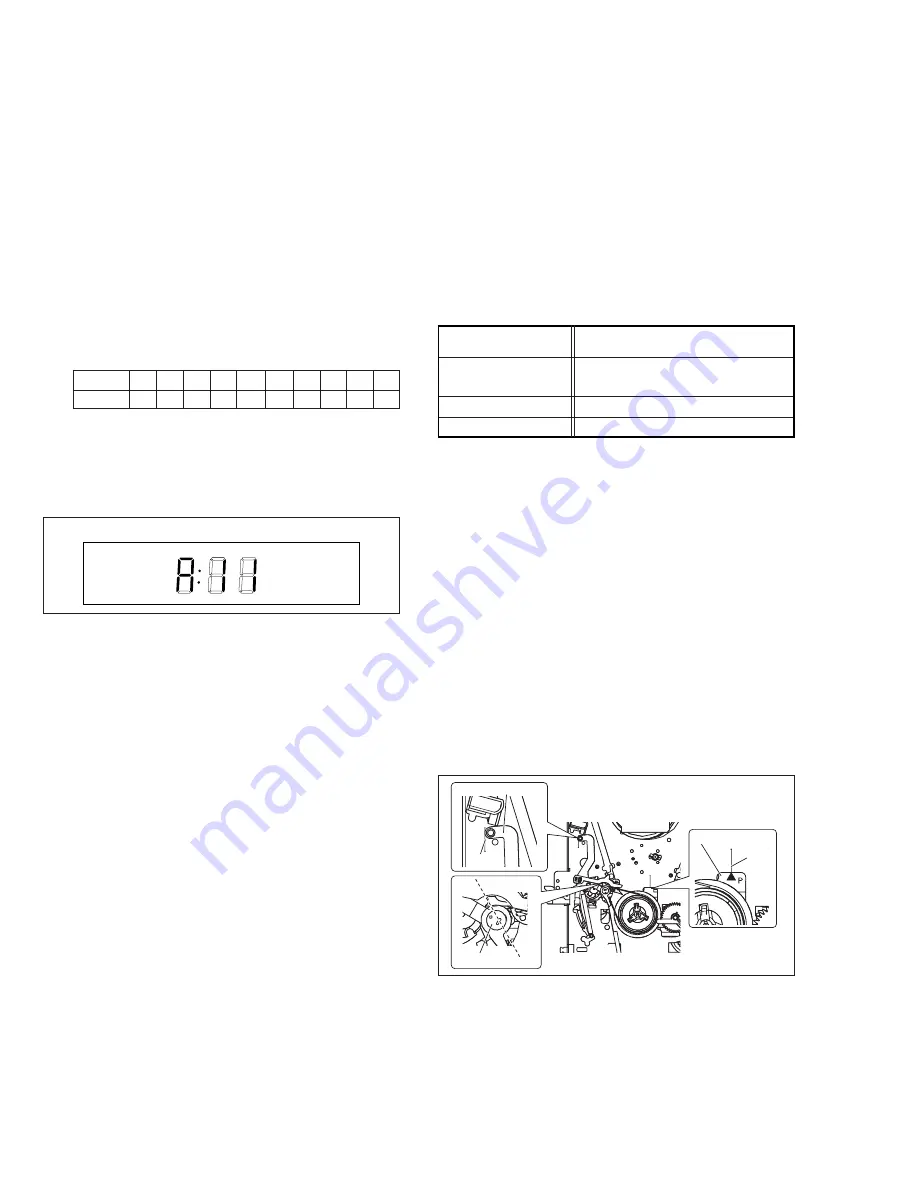
3-2
3.1.7
EVR adjustment
Some of the adjustments require the adjustment performed
by the EVR system. The main unit have EEPROMs for stor-
ing the EVR adjustment data and user setups.
Notes:
• In the EVR adjustment mode, the value is varied with
the channel buttons (+, –). The adjusted data is stored
when the setting mode changes (from PB to STOP,
when the tape speed is changed, etc.). Take care to
identify the current mode of each adjustment item
when making an adjustment.
• When changing the address setting in the EVR adjust-
ment mode, use the Jig RCU or the remote controller
having numeric keypad with which a numeric code can
be directly input.
The remote control code of the Jig RCU corresponds
to each of the digit keys on the remote controller as
follows.
• As the counter indication and remaining tape indica-
tion are not displayed FDP during the EVR adjustment
mode, check them on the TV monitor screen.
• When performing the EVR adjustment, confirm that the
FDP indication is changed to the EVR mode, as shown
below.
Digit-key
0
1
2
3
4
5
6
7
8
9
Code
20 21
22 23
24
25
26
27 28 29
FDP
Fig. 3-1-7a EVR mode
3.2 Mechanism compatibility adjustment
Notes:
• Although compatibility adjustment is very important, it is not
necessary to perform this as part of the normal servicing
work. It will be required when you have replaced the A/C head,
drum assembly or any part of the tape transport system.
• To prevent damaging the alignment tape in the compatibility
adjustment, prepare a cassette tape (for self-recording/play-
back), perform a test on it by transporting it and making sure
that the tape is not bent by the tape transport mechanisms
such as in the guide rollers.(See Fig.3-2-2a)
3.2.1 Tension pole position
Signal
(A)
•
Back tension cassette gauge
[PUJ48076-2]
Mode
(B1)
•
Play back position
(B2)
•
Eject end
Adjustment part
(F)
•
Adjust pin [Mechansim assembly]
Specified value
(G)
•
25 - 51 gf•cm (2.45 – 5
×
10
-3
Nm]
Notes:
•
This adjustment must be performed every time the tension
band is replaced.
(1) Play back the back tension cassette gauge (A).
(2) Check that the indicated value on the left side gauge is
within the specified value (G).
(3) If the indicated value is not within the specified value (G),
perform the adjustment in a following procedure.(See
Fig.3-2-1a.)
1) Remove the top frame, cassette holder and side
frames (L/R) all together. (See “section 2 mecha-
nism”.)
2) Rotate the loading motor gear to move the control plate
so that the triangular stamping to the left of the “P”
stamping is aligned with the stamping (a) on the main
deck. This positioning is mode (B1).
3) Adjust by turning the adjustment pin so that the tip of
the tension arm is aligned with the stamping (b) on
the main deck.
4) Rotate the reel disk (S) by about one turn clockwise
and make sure that the round hole of the adjustment
pin is located in the “OK” range.
If it is outside this range, restart the adjustment from
the beginning.
After completion of the adjustment, rotate the loading gear
motor to return it to the mode (B2) position.
OK
NG
ADJUST PIN
TENSION ARM
Stamping(b)
Stamping(a)
CONTROL PLATE
Fig. 3-2-1a
www.freeservicemanuals.info
3/28/2017
Digitized in Heiloo Netherland

